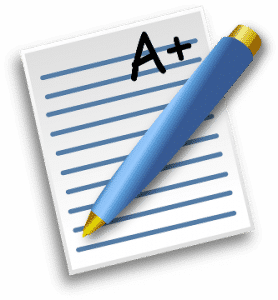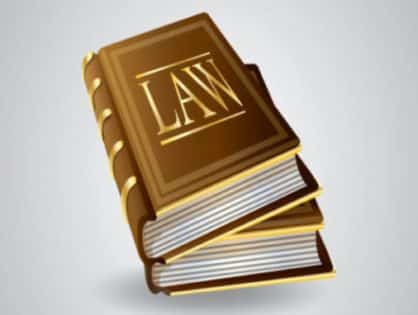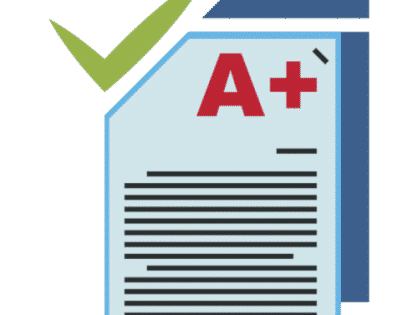[tm_pb_section admin_label=”section”][tm_pb_row admin_label=”row”][tm_pb_column type=”4_4″][tm_pb_text admin_label=”Text”]
So you get back your first law school exam and you did not do as well as you were hoping. You go to the professor and ask what you could do to improve on the final exam. At some point during your meeting with the professor, he or she says that exam writing is part art and part science. Even I used to say garbage like that when I was a new professor. What the professor is really telling you is that you really can’t improve and there is really nothing that he or she can do to help you. You’re either born with this art or you are not. If it is innate, then, unless you are born with it, you are doomed!
But if this is a skill that you can learn, then you can improve your performance on a law school exam.
You Are Different
Students come to law school with different skills and abilities. Some have had lots of experience writing technical essays and others just have not. Those with strong technical writing skills do better than those without that experience. And this is not art! I have read thousands of law school exams and what I’ve seen is students at various stages in their writing career. I can count on one hand the number of times I have seen great writers during the first semester of law school. And only once have I seen a student who had writing skills that surpassed my own. Since his name was also Beau, I jokingly surmise that there must be something about the name.
So why would a professor tell you that law is part art and part science if it isn’t true? One reason is that it just sounds true, at least until you are challenged by someone else. That’s what happened to me. I gave the whole “its part science, part art” argument to a senior professor with a Ph.D. in Educational Psychology. He helped me to understand that higher level writing skills are based on an amalgamation of lower level skills. What that means, in the context of essay writing, is that there are many skills that we lump together and conclude that someone is either a strong writer or a weak writer.
Example

Law school exam essay writing is made up of different components: the ability to organize thoughts, writing in paragraph form, using correct spelling, following English grammar, organizing sentences in paragraph form, use of topic sentences, and so on. Once you realize that there is no dark art, some hidden path for the select few, you can begin figuring out how to improve.
Depending on where you start your journey, you may have more or fewer skills you need to learn to catch up with the top writers in your class. But make no mistake, someone that started essay writing in high school has an advantage, just not an insurmountable one.
Continuous Improvement
The key is continuous improvement. To this day, my writing keeps improving. Recently I was writing in a forum and someone compared my writing to Faulkner. I was certainly flattered by the comment but I recognize he would not have made that comment even ten years ago.
Becoming a better writer takes determination. You need to first diagnose where you are and then work on developing those lower level skills. Once you’ve mastered those skills, then you start working on higher skills, and higher skills. The key is to keep practicing until you improve. (Check out these apps to work on your writing skills.)
The biggest mistake I see when grading law school exams is students failing to distinguish between issues. All issues and sub-issues are lumped together, without using the IRAC method. All that accomplishes is a poorly written law school exam. Before your next exam complete some practice exams–you can get some at my exam bank .
Once you realize that you don’t have to have been born a skilled writer, and have implemented your new skills on the final exam, check out my mini series on steps to take after completing the final exam.
Advanced Law School Tip
If you are ready to take your exams to the next level, you need to write your exams using the Nested IRAC method. This approach to writing law school essay exams is what usually distinguishes the top students. Practice using the method a few times, that way it becomes second nature. Also, organize your notes by creating a pre-written essay outline, which will save you time on the exam.
[/tm_pb_text][/tm_pb_column][/tm_pb_row][tm_pb_row admin_label=”Row” global_module=”4666″ make_fullwidth=”off” use_custom_width=”off” use_grid_padding=”on” width_unit=”on” padding_mobile=”off” background_color=”#f2f2f2″ allow_player_pause=”off” parallax=”off” parallax_method=”off” make_equal=”on” parallax_1=”off” parallax_method_1=”off” vertical_alligment_1=”center” responsive_laptop_1=”inherit” responsive_tablet_1=”inherit” responsive_phone_1=”inherit” order_laptop_1=”1″ order_tablet_1=”1″ order_phone_1=”1″ parallax_2=”off” parallax_method_2=”off” vertical_alligment_2=”center” responsive_laptop_2=”inherit” responsive_tablet_2=”inherit” responsive_phone_2=”inherit” order_laptop_2=”2″ order_tablet_2=”2″ order_phone_2=”2″ column_padding_mobile=”on” padding_top_1=”20px” padding_right_1=”20px” padding_bottom_1=”20px” padding_left_1=”20px” custom_margin=”40px||40px|”][tm_pb_column type=”2_3″][tm_pb_text global_parent=”4666″ admin_label=”Blog Post Newsletter Sign Up” text_orientation=”left” use_border_color=”off” border_color=”#ffffff” border_style=”solid” text_font_size=”18″]
Sign up for our Newsletter and Receive a Free MP3 Law School Study Aid!
[/tm_pb_text][/tm_pb_column][tm_pb_column type=”1_3″][tm_pb_button global_parent=”4666″ admin_label=”Button” button_url=”http://eepurl.com/cBOaBv” url_new_window=”off” button_text=”NEWSLETTER SIGNUP” button_alignment=”left” custom_button=”on” button_letter_spacing=”0″ button_use_icon=”default” button_icon_placement=”right” button_on_hover=”on” button_letter_spacing_hover=”0″ button_text_size=”14″ button_border_width=”0″]
[/tm_pb_button][/tm_pb_column][/tm_pb_row][tm_pb_row admin_label=”Row” global_module=”4672″ make_fullwidth=”off” use_custom_width=”off” use_grid_padding=”on” width_unit=”on” padding_mobile=”off” allow_player_pause=”off” parallax=”off” parallax_method=”off” make_equal=”off” parallax_1=”off” parallax_method_1=”off” vertical_alligment_1=”start” responsive_laptop_1=”inherit” responsive_tablet_1=”inherit” responsive_phone_1=”inherit” order_laptop_1=”1″ order_tablet_1=”1″ order_phone_1=”1″ column_padding_mobile=”on”][tm_pb_column type=”4_4″][tm_pb_text global_parent=”4672″ admin_label=”Blog Post Video” text_orientation=”left” use_border_color=”off” border_color=”#ffffff” border_style=”solid”]
[/tm_pb_text][/tm_pb_column][/tm_pb_row][/tm_pb_section]


















 Holistic Grading
Holistic Grading
